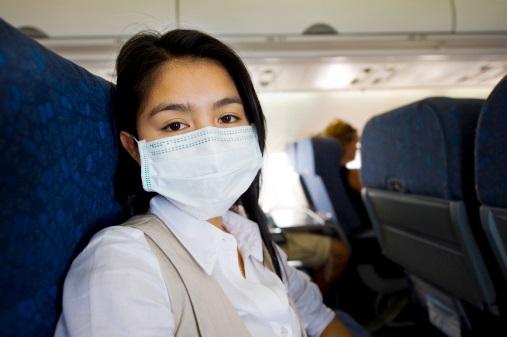South Korean health officials said yesterday that five super-spreaders caused 83% of cases in its MERS-CoV outbreak this year, and they confirmed a new death from the disease in a patient who had earlier tested negative.
Major role of super-spreaders
The five super-spreaders, all of whom had pneumonia, transmitted the virus to 153 people all told out of the 186 MERS-CoV (Middle East respiratory syndrome coronavirus) cases confirmed this year in South Korea after a traveler brought the virus from the Middle East, The Korea Herald reported yesterday.
The findings were highlighted by the country's Centers for Disease Control and Prevention yesterday but were first published Sep 5 in the agency's journal Osong Public Health and Research Perspectives.
As has been noted before, one patient—number 14, a 35-year-old contact with the index patient—spread the disease to dozens of people while staying at Samsung Medical Center in Seoul. The new study places the number of patients he infected at 85.
Patients 1 (the index patient), 14, and 16 had severe coughs and infected 28, 85, and 23 people, respectively, the study said. In contrast, patients 15 and 76 rarely coughed and infected 6 and 11 people, respectively.
The median age of the super-spreaders was 41 years, and they all had contact with hundreds of people during their hospital stays. All but one were men.
About 44% of the 186 patients were exposed in hospitals, 33% were nonprofessional caregivers, and 13% were healthcare workers.
The patients had a mean incubation period of just under 7 days, and their most common presenting symptoms were fever and chills. Older age and underlying respiratory disease were significantly associated with death.
Death in 66-year-old
Also yesterday, a 66-year-old South Korean man died of MERS complications, the first MERS death in the country since July, and five others are suffering long-term health effects, Agence France-Presse (AFP) reported.
The man who died was diagnosed as having MERS-CoV in June after contracting it at Samsung Medical Center. The patient was thought to be cured and tested negative but then experienced MERS-related lung problems and received a lung transplant, Yonhap News reported.
His death was the first from MERS effects after negative test results, the story said. His is the 37th death from the disease in the country.
Seoul had declared its MERS outbreak over at the end of July, but 2 weeks ago a 35-year-old man believed to have been cured of the disease relapsed. He and four other Korean patients who were thought to be cured but are now suffering MERS-related health problems are undergoing treatment, AFP reported.
WHO on relapsed patient
The World Health Organization (WHO) provided new details yesterday on the 35-year-old patient who had a relapse.
He was exposed to a lab-confirmed case on May 27 and tested positive on Jul 7. Following a long hospital stay, he was discharged on Oct 3 after two polymerase chain reaction tests came back negative for MERS-CoV. But then he was readmitted to the hospital on Oct 11 with a fever and tested positive on Oct 12.
The patient has preexisting disease, the WHO said. As of Oct 14, his condition was improving, and contact tracing is ongoing.
See also:
Oct 25 Korea Herald story
Sep 5 Osong Public Health Res Perspect abstract
Oct 25 AFP report
Oct 25 Yonhap News story
Oct 25 WHO statement






















